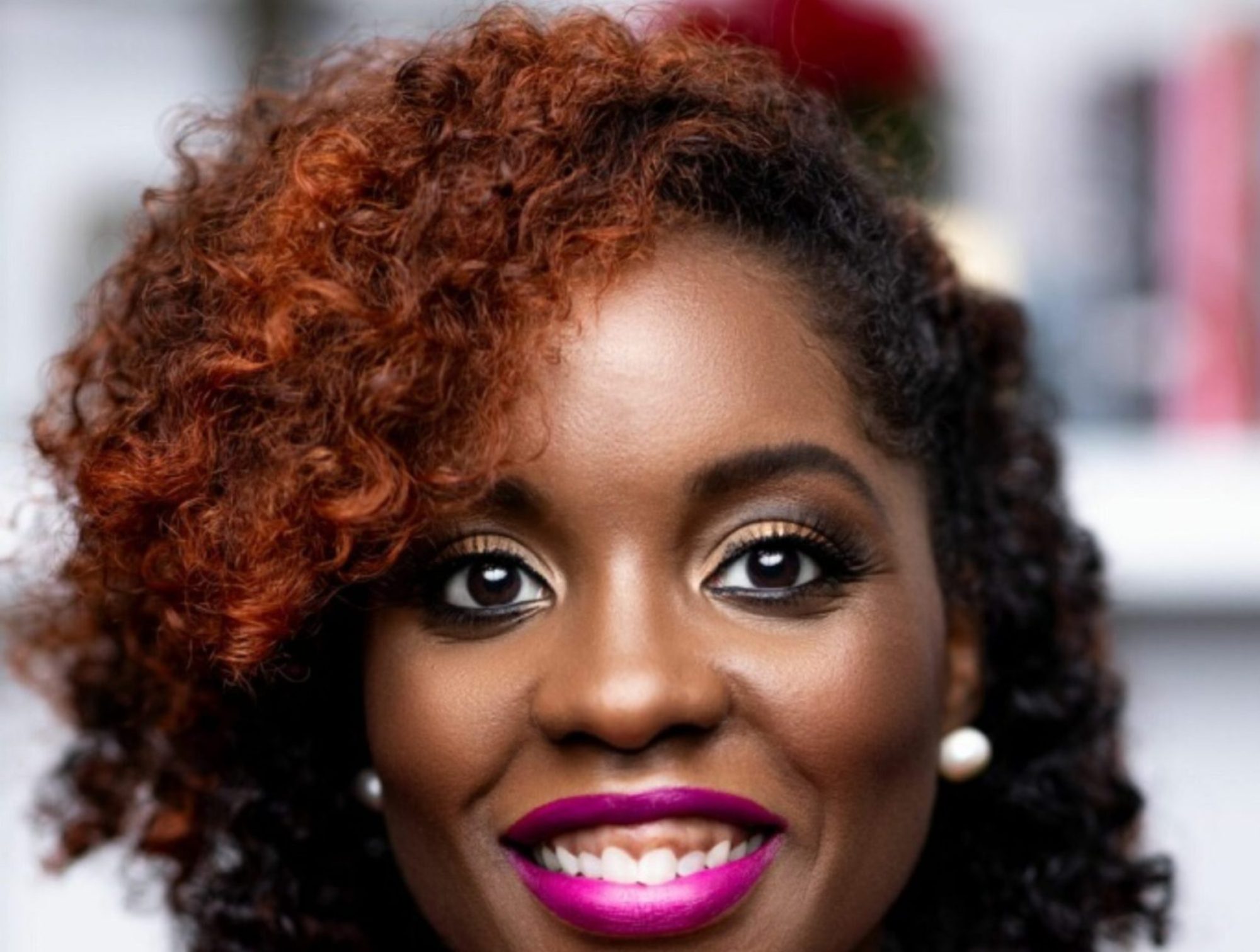In our WDNAI documentary, we were asked about the “Strong Black Woman” persona and how we thought it was affecting black women. One of my Destiny Diamond sisters from Volume 1 (shout out to Shadawn McCants) was absolutely right when she said that cape is choking us!! I said I reject my cape—I’m giving it back! And as I’ve said before, I want every woman to know that it’s time to take that CAPE off and say no to Superwoman Syndrome!

For me C.A.P.E. stands for: Checking boxes, Anxiety, which is very much associated with Perfectionism, and Exhaustion.
We don’t have to be superhuman to be powerful. Our vulnerability IS powerful. Our authenticity IS powerful.
I want you to choose:
Progress over Perfection.
Purpose over Perfection.
Power over Perfection.
Peace over Perfection.
Checking Boxes:
I was just walking around and performing and succeeding because it was what I knew how to do. And I felt the weight of having to be the ONE that looked like me in most rooms—there is that weight of representing your gender and ethnicity that follows you.
I was doing it to the detriment of my health and had to ask myself to what purpose. And I was overwhelmed by all of it—the mom and wife and physician and leader and migraine. I had to make a change. As my sister Rochelle Jacobs says, no one is coming to save you but you. I had decisions to make.
I started with learning to sit down, evaluating my core values, and asking myself if my life was consistent with these values. I realized that it wasn’t, so it was time to do something about it. It wasn’t easy, but it was possible. And if I can, you can.
Purpose over perfection.
Anxiety:
Did you know that perfectionism is associated with anxiety and depression? Well, I was definitely having some dark moments trying to figure out how to break the cycle I was in or keep performing at peak levels when my body was literally giving out on me. And what would people think when I had to admit I needed a break? What would people think if I needed help?
Setting boundaries, using my NO, and learning to choose goals and activities that were consistent with my core values were essential to my shift. I worked on changing the way I approach life, and it is crushing the feelings of anxiety. The people who love you want you to take care of yourself, and typically want to help you in the ways they can. The ones who are judging you? God bless them. They likely have their own issues they are dealing with. Truly. It’s not about you but you also don’t need their negativity. Pray for them and keep it moving.
You deserve better.
Power over Perfection.
Perfectionism:
So…at the heart of it all is the spirit of perfectionism and the topic is so deep I can’t fully go into it in this space. But some fast facts:
- it’s more prevalent in recent years than 30 years ago
- People with perfectionism rarely participate in adequate self-care
- while high standards and a desire for excellence can be a good thing, perfectionism typically inhibits enough that it keeps a person from performing to their true potential due to fear of judgment and procrastination
Although I was quite successful in my perfectionism, I can tell you that I found it keeping me from speaking up in meetings where I had great ideas or holding back from projects or steps in my life where I was scared of some type of failure. In fact, I realized I had not really ever failed at anything because I never really attempted anything I didn’t know I could do—I played it safe which also likely kept me from growth.
One of my favorite quotes by Marion Williamson in part states, “We ask ourselves, “Who am I to be brilliant, gorgeous, talented, fabulous?” Actually, who are you not to be? You are a child of God. Your playing it small doesn’t serve the world.”
We have a responsibility to live up to our fullest potential. Focus on the process, not the outcome. Failure is inevitable if you are trying for something extraordinary, but it also brings you one step closer to success. As someone said, you’ve learned one way not to do it. Don’t let your perfectionism hold you back.
Progress over perfection.
Exhaustion
I was exhausted, not just physically, but mentally and emotionally. I was running my body into the ground. I had a continuous migraine, a condition called status migrainosus, and would not get it properly evaluated, adequately treated, or simply take some days off to try to rest appropriately.
Mentally, I was drained, because trying to keep up with the demanding academics of medicine and plan and take care of domestic responsibilities when in pain was grueling. Emotionally, I was a wreck. Chronic pain is associated with depression, and I’m not going to say I was depressed, but I was definitely irritable, frustrated, a little scared—all day, every day. I also felt like no one understood what I was going through and couldn’t support me.
Exhaustion. When you’re carrying more than you should, you can be emotionally, mentally, physically, and spiritually tired, because you don’t have time to take care of you. Remember, loving others begins in appropriate self-love, and self-love equals self-care.
Start setting boundaries. Ask for help appropriately. Rest when you’re tired. Eat when you’re hungry. It sounds so basic, but sometimes, we just don’t. That cape is at the cost of our physical, mental, emotional and spiritual health. We have to stop.
Peace over Perfection.







